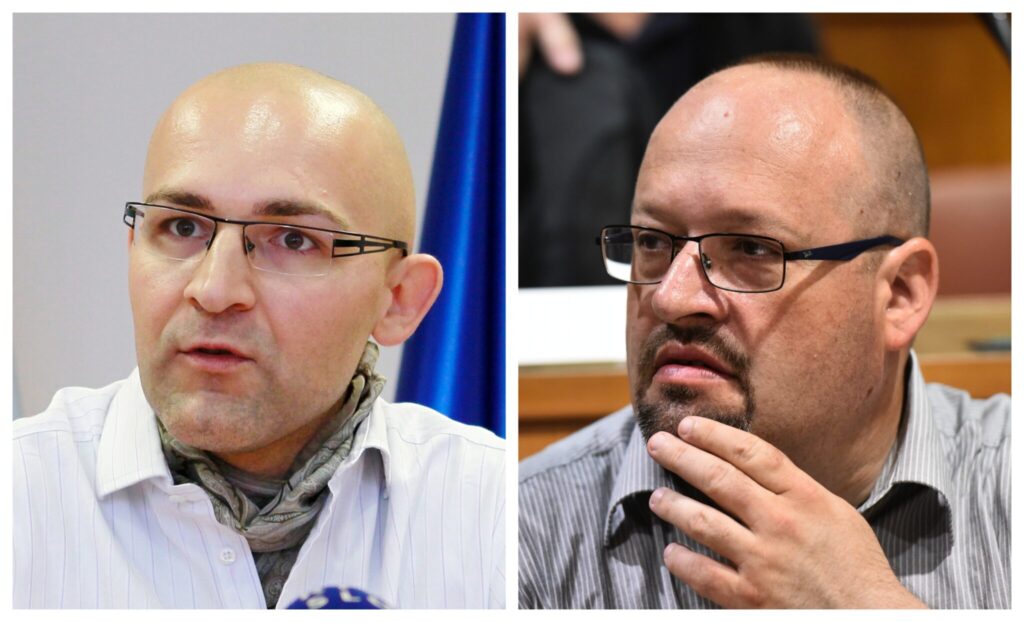The undersigned representatives of the academic community in Slovenia feel an intellectual and moral duty to respond to the assessment of the situation in the fields of science and culture in Slovenia, which was presented in a bleak image in a public letter addressed to Prime Minister Janša by a group of foreign scholars. In your letter, you expressed concern about the alleged contraction of academic freedom under his government. Your description does not correspond to the actual situation. In addition, your letter contains strong accusations based on ideological prejudice, bias, and even obvious untruths. In doing so, you even go so far as to accuse Janez Janša of anti-Semitism, which is absurd par excellence. Neither in his rhetoric, nor in his work are there the slightest traces of such sentiments. After all, he has just returned from Israel, where he was warmly received as a statesman and a sincere friend of the Jewish state.
As you are not familiar with the situation in Slovenia, we would like to inform you that under the current government, the state funding of science and culture enjoys a decent share of funding. Many non-governmental organizations – including those that are openly hostile to Janez Janša and his party – are generously supported by public money. The appointment of directors of public cultural and research institutions, which is the responsibility of the government, has taken place in the same way as under previous governments. In addition, the current government is committed to diversity and pluralism in academic circles, based equal treatment of different academic institutions, regardless of their formal status or the worldview of the researchers working in these institutions. This was not the case during the term of the last three governments. On the contrary, these governments attempted to increase the monopoly of large public universities and institutes, often through ideologically motivated discrimination and even attempts to destroy smaller independent educational and research institutions.
Dear academic colleagues, we would like to inform you that there are no reasons for your concern. We are sorry that your colleagues from Slovenia informed you in a very one-sided and incomplete manner. When reading your letter, we were under the impression that the lines from your letter were dictated by someone from Slovenia. the way of writing is very reminiscent of the discourse of a certain circle of supporters of the Slovene left, who cannot accept the fact that their political preference is currently not in power, as they fear the loss of privileges. The fact is that since the formation of an independent Slovenia, three quarters of the time the left has been in power. During its time, the political left placed their people in the most key positions in education, science, culture, civil society and the media, with political-ideological loyalty often being the key criterion, and scientific or artistic excellence being of secondary importance. The Slovenian academic and cultural space is not an open space for the coexistence of different worldviews and the free exchange of different opinions, but we are dealing with the existence of ideological hegemony of the left. In most of the period of independent Slovenia, pressure has been exerted on those who did not agree with the postulates of leftist ideologies.
It is therefore hypocritical if the protagonists of this hegemony now declare themselves victims and mislead their academic colleagues abroad in defending their positions.
Very importantly, your concerns over Slovenia’s intention to establish a museum of Slovenian independence are completely inappropriate. Although the creation of an independent Slovene state is the most important act in the history of the Slovene nation, part of the Slovene left feels uneasy about it, as it was not among its protagonists, and some even actively opposed it. Thus, attempts have been made to minimize its significance, even in a way that opposes the symbolic commemoration of this groundbreaking historical event.
We agree that the issue of academic and artistic freedom is extremely important, so we invite you, the signatories of the letter to Prime Minister Janez Janša, to contact us so that you, as experts in Central and South-Eastern Europe, can be provided with a comprehensive information about the situation in Slovenia.
Yours sincerely!
Prof. dr. Borut Rončević, Jean Monnet Chair and the Dean of the School of Advanced Social Studies
Prof. dr. Matevž Tomšič, Jean Monnet Chair and professor at the Faculty of Media


